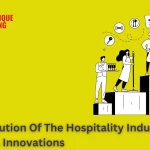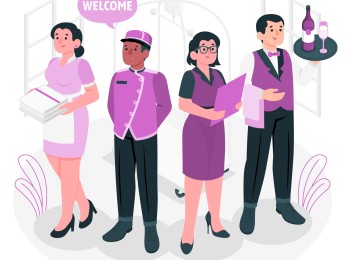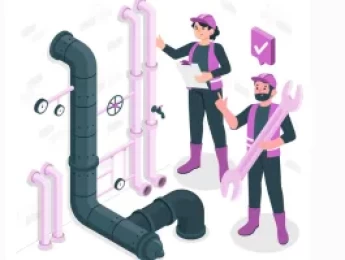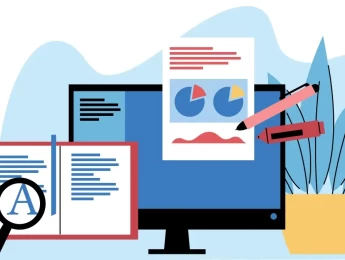Food and Beverage (F&B) services are at the heart of guest experience in the hospitality industry, playing a key role in customer satisfaction, brand perception, and revenue generation. Managing F&B operations successfully requires a balance between culinary creativity, service excellence, cost control, and operational efficiency.
This course offers hospitality professionals a complete overview of how to manage F&B operations effectively within hotels, resorts, restaurants, and event venues. It covers essential areas such as menu engineering, service standards, procurement, hygiene, financial performance, and team leadership. With practical tools, real-life examples, and global best practices, participants will be equipped to deliver memorable dining experiences while optimizing profitability.
By the end of this course, participants will be able to:
- Understand the structure and functions of F&B operations in hospitality settings.
- Apply effective planning and coordination in kitchen and service areas.
- Implement quality control and hygiene standards.
- Design profitable menus and manage food costs.
- Oversee staffing, scheduling, and service excellence.
- Use performance indicators to track and improve F&B outcomes.
- Ensure alignment between F&B services and overall brand standards.
This course is ideal for:
- F&B managers and supervisors in hotels and restaurants.
- Executive chefs and kitchen managers.
- Hospitality operations and outlet managers.
- Catering and banquet professionals.
- Restaurant owners and investors.
- Hotel management trainees and future leaders in hospitality.
- Hospitality consultants specializing in food services.
The training is highly interactive and practice-oriented. It includes role-playing scenarios, case studies from luxury and mid-range properties, group discussions, operational simulations, and menu planning exercises. Participants will also work with performance templates and F&B audit tools to apply learning directly to their workplace challenges.
Day 5 of each course is reserved for a Q&A session, which may occur off-site. For 10-day courses, this also applies to day 10
Section 1: Foundations of F&B Operations in Hospitality
- Overview of F&B departments in hotels, resorts, and events.
- Key roles and responsibilities in F&B management.
- Relationship between F&B and other hotel departments.
- Service types: à la carte, buffet, banqueting, room service.
- Revenue contribution and strategic importance of F&B.
- Understanding guest expectations and evolving food trends.
- Challenges in modern F&B operations.
Section 2: Menu Planning and Cost Control
- Menu engineering: balancing creativity, pricing, and profitability.
- Understanding food cost, portion control, and waste reduction.
- Designing menus for different target markets and service styles.
- Beverage selection, pairing, and pricing strategies.
- Seasonal and local sourcing considerations.
- Creating specials and promotions without compromising margins.
- Tools for analyzing menu performance.
Section 3: Service Excellence and Guest Experience
- Setting F&B service standards and SOPs.
- Table setup, sequence of service, and guest interaction techniques.
- Handling complaints and special dietary requests professionally.
- Coordinating kitchen and front-of-house communication.
- Training staff for consistency and service confidence.
- Personalization and storytelling in food service.
- Case study: Delivering 5-star F&B experiences.
Section 4: Procurement, Inventory, and Hygiene Management
- Procurement planning and supplier relations.
- Managing inventory and stock rotation (FIFO, LIFO).
- Quality control for raw materials and finished products.
- HACCP principles and food safety regulations.
- Kitchen sanitation and equipment maintenance.
- Waste tracking and reduction initiatives.
- Auditing F&B operations for hygiene and compliance.
Section 5: Financial Performance and Operational Strategy
- Budgeting and forecasting for F&B departments.
- Revenue management strategies in F&B.
- Analyzing sales reports, cost percentages, and profit margins.
- Staff scheduling and labor cost optimization.
- Upselling techniques and guest spending strategies.
- Aligning F&B operations with brand identity and marketing.
- Post-service evaluations and operational improvement plans.
Upon successful completion of this training course, delegates will be awarded a Holistique Training Certificate of Completion. For those who attend and complete the online training course, a Holistique Training e-Certificate will be provided.
Holistique Training Certificates are accredited by the British Accreditation Council (BAC) and The CPD Certification Service (CPD), and are certified under ISO 9001, ISO 21001, and ISO 29993 standards.
CPD credits for this course are granted by our Certificates and will be reflected on the Holistique Training Certificate of Completion. In accordance with the standards of The CPD Certification Service, one CPD credit is awarded per hour of course attendance. A maximum of 50 CPD credits can be claimed for any single course we currently offer.
- Course Code IND15 - 141
- Course Format Classroom, Online,
- Duration 5 days













